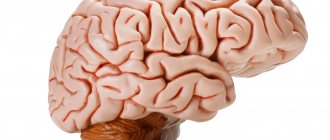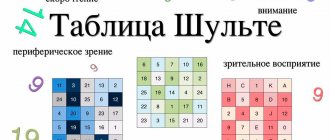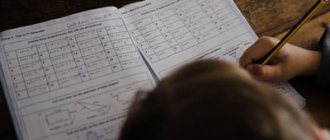Author of the material: Ermolaeva Zhannetta Evgenievna -
Co-founder of the portal Eduneo.ru, candidate of philological sciences, associate professor, speech therapist, linguist expert.
Expert: in the field of Russian language, literature, teaching methods, speech therapy
Author's project: online platform for expert teachers Eduneo
Every day a person, both an adult and a child, receives a huge amount of information from various sources. If we talk about a child, he receives the main amount of information at school with the help of a teacher. To implement this task, it is necessary to develop reading skills in students. Reading skill has two sides - semantic and technical.
You might be interested in the webinar “Exercises to increase reading speed”
In my opinion, among the techniques that contribute to the formation of semantic reading strategies, special attention should be paid to tasks that develop the mechanism of forecasting (anticipation):
- predicting the content of a text by its title, author's surname, epigraph;
- restoration of missing parts in the text;
- drawing up a preliminary plan of the text before reading it, taking into account the title.
Anticipation (anticipatio) – predetermination, anticipation, prediction of events; a preconceived idea about something. In a modern literary reading lesson, anticipation is used during reading warm-ups, to formulate the topic of the lesson based on orientation in books, at the stage of preparation for the perception of a literary work or part of it, during the primary perception of the text.
The formation of this skill occurs in stages:
- preliminary exercises;
- we teach how to answer direct questions from the text;
- students ask questions themselves (why?);
- searching for hidden questions and answering them;
- checking yourself in the text (the task of this stage is to find the answer in the text and check your assumptions);
- we teach to predict, to guess the text;
- connecting the imagination;
- working with text in dialogue mode using reference signals: B – ask the author a question; O – answer; P – check yourself; Z – make your “forecast”, guess.
We start learning with small texts.
Mastering the anticipation technique continues throughout the entire training period. At the same time, the complexity of the texts proposed for work and the level of complexity of tasks for them increases.
Stages of preparatory work:
- Vocabulary work.
Students independently predict unfamiliar words from a new work. The lexical meaning of a new word is initially formulated by students, relying on existing ideas, life experience, and intuition. The teacher has only a clarifying, corrective function.
- An important point in the preparatory stage, which helps to increase the activity and awareness of children when working with a new work, is the predetermination by students of the content of the work by its title and new words, which children become familiar with before reading the work. Checking the correctness of children's assumptions closely merges with checking primary perception, during which students not only express their impressions of the work they listened to, briefly reproduce the plot, but also check their predictions.
Anticipation mechanism
Anticipation – knowledge of what is happening. If there were no knowledge, no past experience, there would be no intuition either. A person can vaguely guess about something, but this is also the result of existing experience and instincts. If a person were deprived of all this, then there would be no anticipation (that is, automatic analysis and understanding of the situation). The anticipation mechanism should be considered.
In the present, a person performs actions under conditions that may be similar to past circumstances, but still have differences. A person gets new results. They may be similar to the past, or they may be completely different, new. All this is recorded in memory as new information, which will be used again in forecasting in the future.
At the present moment, the information received is being sampled. It depends on what kind of future a person anticipates, which will help in achieving it. In the future, certain results will be achieved that will become a new experience. Also, what information a person will extract from his own memory depends on the desired future. Everyone has a lot of information. The only thing that is important is the one that becomes useful and necessary when a certain future is achieved.
Examples of anticipation
Anticipation in everyday life is involved in almost all events.
Anticipation has the following types: indicative and visionary. Indicative anticipation has a relationship with the indicative actions of subjects in the conditions that surround it. It is aimed at better adaptation to them and survival. Such anticipation takes place in the realm of the semi-conscious. An example of this would be predicting the movements of a partner in sparring.
Visionary anticipation is associated with the activity of predicting all kinds of global changes in the life of society, various nationalities, races and ethnic masses according to available, but latent (hidden from primary logic) trends. Scientific foresight is included in the group of visionary anticipations, being the highest form of reflection of the subject’s creativity, through which the practical and theoretical development of the world occurs.
Vivid examples include various predictions of global changes. For example, forecasts of social and historical development of society; literary works of a science-fiction nature that contain an expected model of social and technological development in the future of humanity; concepts and inventions that are ahead of modern knowledge and ideas, paradigms and logic.
An example of anticipation is Newton's discovery of the law of gravitation or professional intuition, based on long experience, the anticipation of a political or economic crisis.
Anticipation is an effective method for improving reading technique in children. With regular training, a child can learn to guess the entire word by the first letters of a word, and the content of the entire text by the first phrases. Anticipation can significantly increase your reading speed. Therefore, this technique is one of the most important when working with text for reading.
Anticipation techniques for working with texts are as follows: predicting the meaningful meaning of the text by the epigraph, title or surname of the author; acceptance of text recovery with missing elements; before reading the text, a technique for drawing up an outline based on existing knowledge, reading experience, title, styles and genre; a method of guessing the direction of the author's thought when reading with certain stops.
Anticipation
– the ability of the system in one form or another to foresee the development of events, phenomena, and results of actions. In psychology, two semantic aspects of the concept “A.” are distinguished: 1) a person’s ability to imagine the possible result of an action before it is carried out (W. Wundt), as well as the ability of his thinking to imagine a way to solve a problem before it is actually solved - 2) the ability of the human or animal body to prepare to react to an event before it occurs. This expectation (or “anticipatory reflection”) is usually expressed in a certain posture or movement and is provided by the mechanism of the acceptor of action results (P.K. Anokhin). A. is especially significant in creative and research activities.
L.A. Karpenko
Anticipation mechanism
The memory mechanism can set in motion the mechanisms of anticipation - foresight and foresight. What is important is not just the capture of information and not the volume itself, the organization of memory. The method of anticipation itself significantly depends on the method of organizing information in memory.
The relationship between anticipation and memory lies in the influence of memory on anticipation processes. An individual, in the process of performing any activity, moves, figuratively speaking, along the time axis. In the process of such movement, material about the present event is recorded in memory. However, at the same time, depending on the activity performed, the material that was stored there is retrieved from memory. Those. In each fragment of the current moment, old material is removed from memory. Then it is checked, can be corrected, transformed (depending on the new information received at the current moment) and combined with new material and again stored in memory, only an updated version.
Memorization involves the process of sampling received information. The sample may depend on goal setting and plans that an individual makes at a particular moment in the processes of activity, cognition and communication. In the act of goal setting and activity planning, criteria for sampling the received material for memorization (both voluntary and involuntary) are formed. The selected event is included in the general memory system, enriching it, however, along with this, the memorization process is focused on future events.
Anticipation has a significant impact on reproduction processes, i.e. extracting stored material from it. And what exactly needs to be retrieved from memory at a specific moment of the present depends not so much on the moment itself, but also on its relationship to the anticipated future (anticipated).
To study the memorization process, the method of anticipation (anticipatory reproduction of a series) is used. It is based on the presentation (auditory or visual) at a certain pace to the subjects of a set of stimuli (for example, numbers) and instructions are given to remember the entire set of stimuli so that each previous element of the chain evokes in them an idea of the next one. The intervals between presented elements of the chain should be no more than three seconds. The subject’s task is to correctly repeat subsequent elements when the previous ones are presented to him.
The anticipation method is based on the fact that every presented element of the chain is a signal for the stimulus that follows it. Anticipation methods use criteria such as the time and number of repetitions required for the correct anticipation of absolutely all elements of the chain; with individual repetitions, the number of error-free anticipations; the nature and number of incorrect anticipations during individual repetitions; construction of a learning schedule for all elements of the chain.
There are several mechanisms of anticipation: sensorimotor; perceptual, level of ideas, verbal-logical, subsensory.
Anticipation in psychology
Mechanisms of cognition have three forms: perception always occurs in the present, memory (experience) is developed in the past, anticipation is directed to the future. Anticipation in psychology is considered as an anticipatory phenomenon that allows one to look into the future. When perceiving current circumstances, a person turns to the past experience that he already has, and always looks into the future, what can happen next.
What is intuition? Many people understand intuition as something inexplicable: something given from the outside, from nowhere, from the worldwide flow of information. Perhaps intuition is truly something inexplicable that is still waiting to be studied. But if you take a closer look, you can understand that it is the accumulated experience of the person himself.
Intuition (anticipation) is based on human experience and instincts. Instincts are understood as innate reactions of the human body to certain events. When a person is scared, all his forces are mobilized in order, if necessary, to allow him to run away, jump high, and fight off what threatens him. Instincts are innate reactions that are given to all people. Thus, intuition at the level of instincts is the same for all people.
As for anticipation, which is based on human experience, it may differ from person to person. And this is not surprising, because each person has his own baggage of experience and knowledge.
Anticipation – beliefs from your past experiences. When faced with certain situations, you analyze them, act, get results, understand what you did right and wrong, then act again, getting the corresponding results. Over time, your experience becomes automatic. This is intuition. You no longer need to think about the situation; you already understand it, since you have encountered it more than once and know it inside and out.
Thus, anticipation is always associated with the experience of actions performed in the past and results achieved, which can now be recreated in the present so that the same thing happens in the future. This phenomenon is always associated with spatiotemporal anticipation, which is focused on the expected future.
The regulatory function of anticipation is that a person limits the range of his actions depending on the results he wants to achieve. This process begins with an analysis of present circumstances that are already programming the future. A person sets the desired result, and also predicts actions that will help him achieve this result. As the goal is achieved, he looks at the results of certain actions, correlating them with the final result. This helps him correct and regulate his own behavior.
We can say that anticipation becomes not only an intuitive prediction of the future, but also the possibility of its formation. Intuition manifests itself at the moment when a person does not achieve any result, but analyzes the situation and understands what can happen to him.
In anticipation, the memorization process becomes selective. Only that information is perceived that becomes important in foreseeing and forecasting a specific future.
People have different anticipations. What is this connected with? With their personal psychological characteristics, which include imagination. The more developed, flexibility of thinking, past experience, etc., the better developed anticipation.










